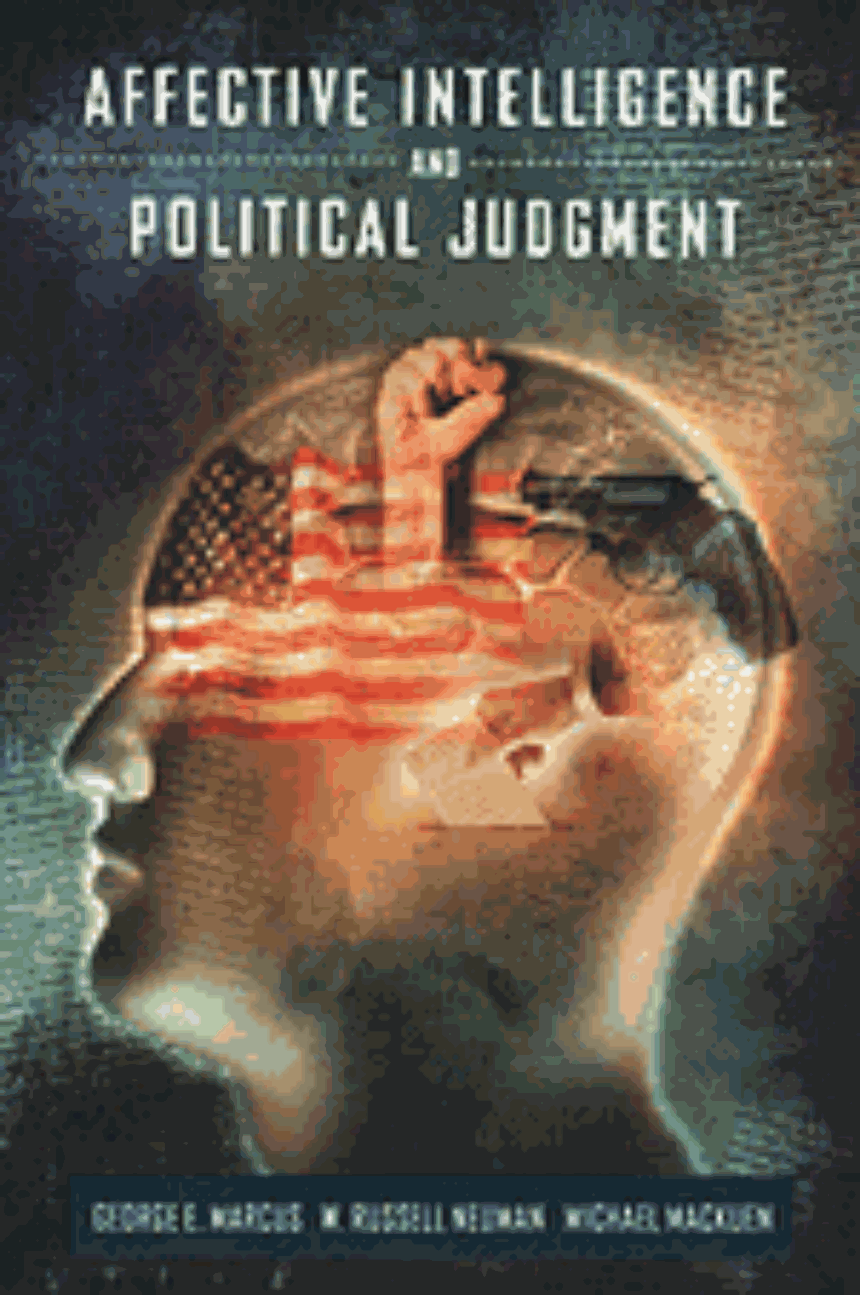Affective Intelligence and Political Judgment
Although the rational choice approach toward political behavior has been severely criticized, its adherents claim that competing models have failed to offer a more scientific model of political decisionmaking. This measured but provocative book offers precisely that: an alternative way of understanding political behavior based on cognitive research.
The authors draw on research in neuroscience, physiology, and experimental psychology to conceptualize habit and reason as two mental states that interact in a delicate, highly functional balance controlled by emotion. Applying this approach to more than fifteen years of election results, they shed light on a wide range of political behavior, including party identification, symbolic politics, and negative campaigning.
Remarkably accessible, Affective Intelligence and Political Judgment urges social scientists to move beyond the idealistic notion of the purely rational citizen to form a more complete, realistic model that includes the emotional side of human judgment.
The authors draw on research in neuroscience, physiology, and experimental psychology to conceptualize habit and reason as two mental states that interact in a delicate, highly functional balance controlled by emotion. Applying this approach to more than fifteen years of election results, they shed light on a wide range of political behavior, including party identification, symbolic politics, and negative campaigning.
Remarkably accessible, Affective Intelligence and Political Judgment urges social scientists to move beyond the idealistic notion of the purely rational citizen to form a more complete, realistic model that includes the emotional side of human judgment.
200 pages | 19 line drawings, 22 tables | 6 x 9 | © 2000
Political Science: Political Behavior and Public Opinion
Table of Contents
Acknowledgments
1. Coming to Rational Choice
2. Human Affect in the Western Tradition
3. Drawing from the Neurosciences
4. Dual Affective Subsystems: Disposition and Surveillance
5. Emotion and Political Behavior
6. Emotion and Political Judgment
7. Affective Politics
Appendix A: Affective Intelligence and the Dual Model of Emotional Systems
Appendix B: Toward a Measurement Theory of Political Affect
Appendix C: Suggestions for Further Reading
References
Index
1. Coming to Rational Choice
2. Human Affect in the Western Tradition
3. Drawing from the Neurosciences
4. Dual Affective Subsystems: Disposition and Surveillance
5. Emotion and Political Behavior
6. Emotion and Political Judgment
7. Affective Politics
Appendix A: Affective Intelligence and the Dual Model of Emotional Systems
Appendix B: Toward a Measurement Theory of Political Affect
Appendix C: Suggestions for Further Reading
References
Index
